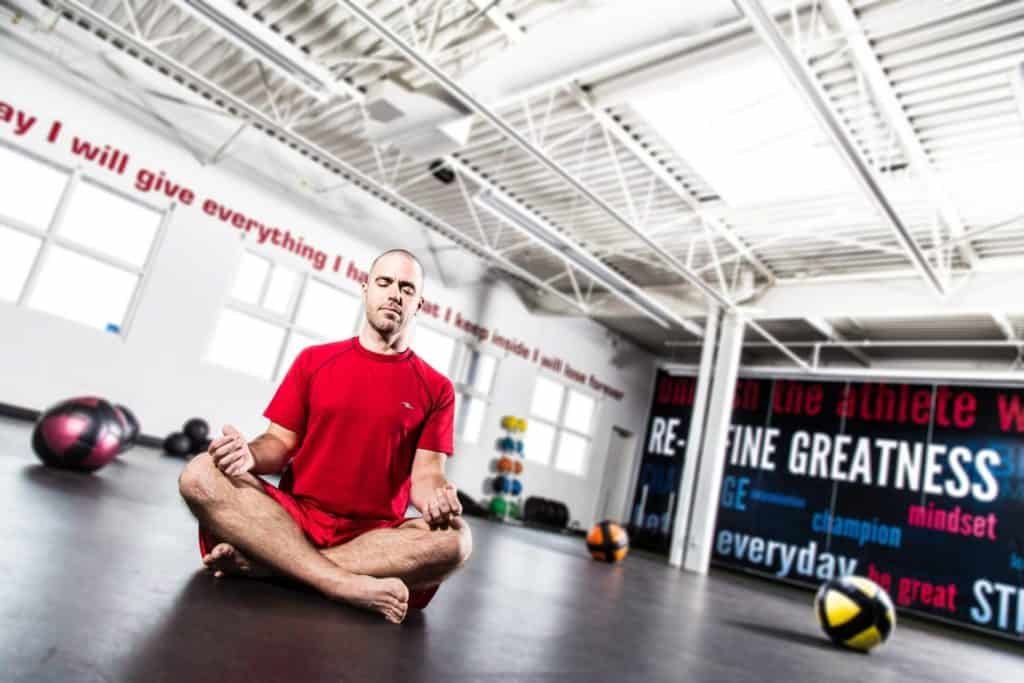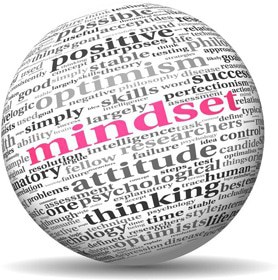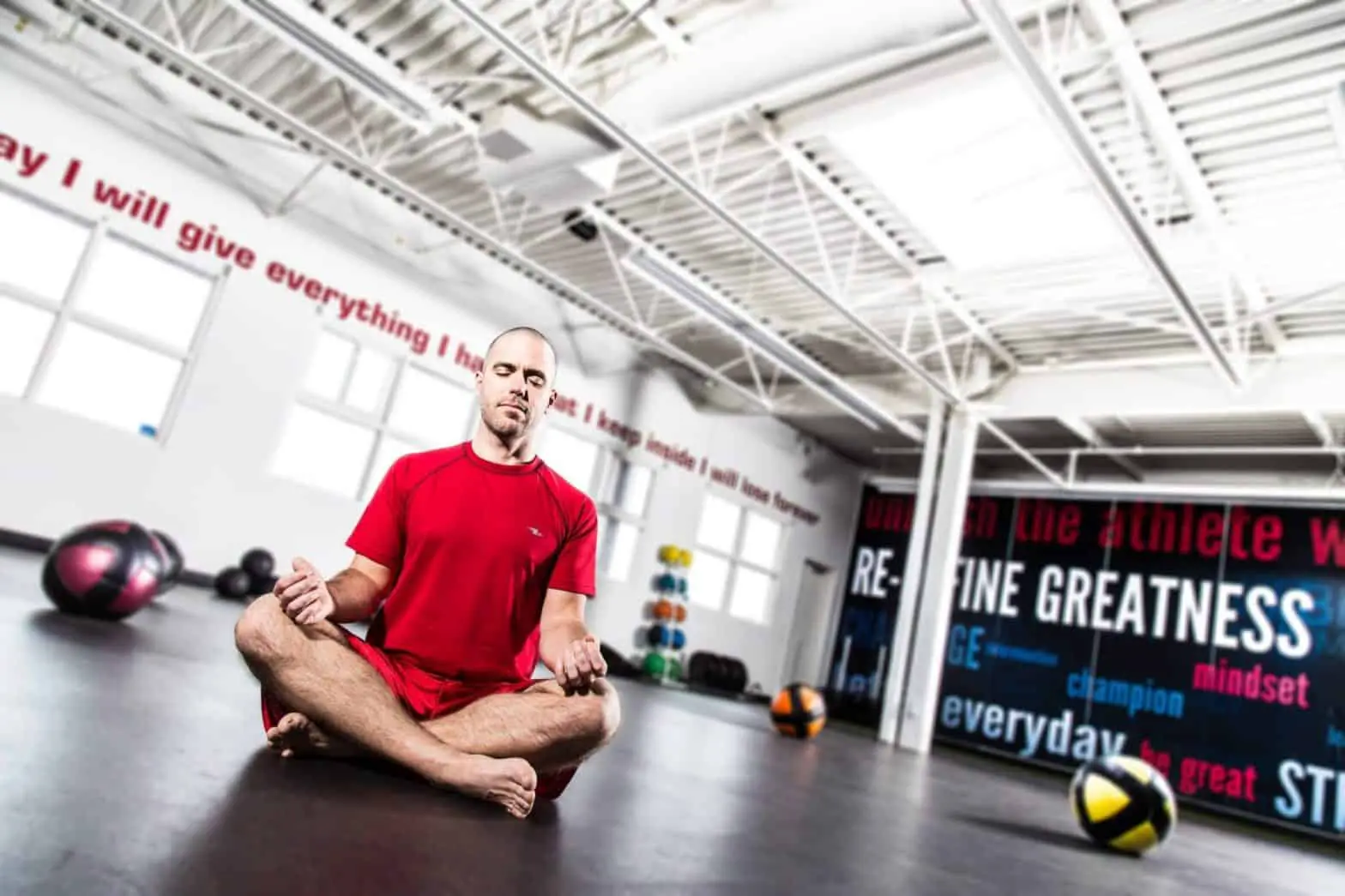Table of Contents

Mindfulness for Athletes
Explaining mindfulness to athletes has taught me that just knowing how to define a term or concept does not mean it is easy to put it into practice. Many athletes are more familiar with the term sports psychology. But mindfulness is becoming a huge movement in the area of athlete performance.
In simple terms, mindfulness can be defined as the integration of three components: awareness, acceptance and action. Breaking it into these components is like dissecting a process that might take just seconds to actually happen. So remember that the three components is like putting mindfulness under a microscope in order to see the details.
*This post may contain affiliate links. As an Amazon Associate we earn from qualifying purchases.
Mindfulness in Sport
 The concept of mindfulness in sport is embedded in a shift in the broader field of psychology and promoting more positive psychology and more mindfulness based cognitive theories and therapies. Maybe a good way to further explain this is by asking yourself this question:
The concept of mindfulness in sport is embedded in a shift in the broader field of psychology and promoting more positive psychology and more mindfulness based cognitive theories and therapies. Maybe a good way to further explain this is by asking yourself this question:
Where was my head when I had a successful performance?
What typically has occurred in the past is that athletes oftentimes want help with their mental game when things are not going well. This leads to analyzing a performance from this question:
What am I all doing wrong?
I suppose you can argue that in some ways these questions are the same. But I don’t think so.
Navy Seals and Athletes
The Navy Seals have a short video explaining findings from their research that asked what are the mental tools being used by the people who pass the really difficult and intense training tests to become Seals? In other words, they looked at this from a positive psychology point of view and asked: What mental tools are these people using to be successful?
This research is really helpful as a guide to looking at how you might develop awareness and tools to practice mindfulness. They noted four important mental tools that seemed to be very helpful for performing under pressure. These include goal setting, breathing or managing arousal, visualization, and self-talk. I think it is important to know about and use, all four tools as part of your mental game. However, this article will focus specifically on self-talk in detail and other articles that follow will address the other three tools. The reason for this is self-talk is a critical component when using the other skills.
Understanding and Using Self Talk
 We talk with ourselves constantly throughout the day. Some of this dialogue is negative, some neutral, and some positive. One main point about self talk is some of it sets us up for success while other types of self talk set us up more for failure, or at least high anxiety.
We talk with ourselves constantly throughout the day. Some of this dialogue is negative, some neutral, and some positive. One main point about self talk is some of it sets us up for success while other types of self talk set us up more for failure, or at least high anxiety.
We have constant self talk chatter in our heads everyday. There is a great deal we are not even aware of telling ourselves. In the Navy Seals video they said that people who don’t perform well are most likely to engage in the following self talk:
- I’m not sure I can do this.
- What happens if I screw up?
- What if someone gets mad at me?
I think many athletes engage in very similar self-talk but either does not know it (unaware) or think this is normal so they don’t question it and therefore don’t know to change it. But, my hunch is when athletes are playing really well they change their self-talk to include more statements such as:
- Just focus
- Give me the ball
- I can do this
- I like competing
Self Talk, Mindfulness and Athletes
Going back to the beginning of the article I discussed the three components of mindfulness as awareness, acceptance, and actions. My challenge to athletes is to grow your awareness by creating some worksheets and getting to know what you are telling yourself when you are successful, something similar to the navy seals approach.
Make a Word document and keep some data about your self talk.
Pregame
1. What am I saying to myself pre practice or pre game?
2. Are these statements helpful?
3. Do these words positively energize me or help me get into a good zone?
4. Do these statements help me be successful?
During the Game
1. What am I saying to myself while I am playing when I am successful?
2. Are there are few words or statements that I repeat?
3. What words do you use to help myself stay focused?
The key is for you to become more aware of your self talk and use positive self talk on purpose. I consider this a skill which means you can develop it and make changes. In this way it is like building muscle; the more you do it the stronger you get.
After you have gathered some “data” you might start to see a pattern that certain self talk seems associated with helping you perform the way you want than begin to rehearse (repeat in your head or write on the card you see) and visualize those words on purpose. This is how you begin to manage some of that self-talk. Change it when needed and know you can improve the skill in doing this. That is what makes good athletes even better.
For further support, we wrote a short book called Mindfulness and Sport Psychology for Athletes, which is an excellent learning guide for the basic concepts discussed in this article.

